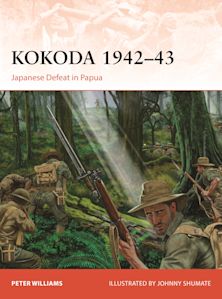- Home
- ACADEMIC
- History
- Military and Naval History
- Douglas MacArthur
This product is usually dispatched within 2-4 weeks
- Delivery and returns info
-
Flat rate of $10.00 for shipping anywhere in Australia
You must sign in to add this item to your wishlist. Please sign in or create an account
Description
From I Shall Return to Old Soldiers Never Die, General MacArthur's phraseology invariably captured an audience's attention. The MacArthur persona may be familiar to many Americans more because of his oratory than because of his military deeds. Covering both his martial and his political oratory, this book provides a balanced, full-length study of MacArthur's oratorical accomplishments and their impact. Part I is a critical analysis of MacArthur and his speeches, while Part II contains the texts of the addresses discussed.
In their analysis, the authors avoid extremes of praise or blame. The highlight of the book is its account of MacArthur's rhetoric persuading Army and Navy chiefs to undertake the Inchon landing, arguably his finest hour. When MacArthur challenged Truman, taking policy differences to Congress, his rhetoric enabled more than one congressman to see deity in the general. Duffy and Carpenter analyze well the measured cadences of that speech as well as the platitudes of the keynote speech at the 1952 Republican National Convention. If 'Old Soldiers Never Die' polished his halo, the convention address tarnished it. This book captures both the brilliant flashes and the arrogant stupidities of the man. (Quoted from the foreword by Robert P. Newman)
Table of Contents
Foreword
Critical Analysis
War Ending and Oratorical Beginning
The Truman-MacArthur Controversy and the 1951 Address to a Joint Meeting of Congress
MacArthur, Republican Politics, and the "Triumphal Tour"
MacArthur's Oratory on Behalf of Inchon: Discourse that Changed the Course of History
Martial Lexis from Aristotelian Attica: The Stylistic Persona of Douglas MacArthur
Retrospect and Prospect
Speeches
Veterans of the Rainbow (42nd Infantry Division of World War I), Washington, D.C., 14 July 1935
The Hope of All Mankind USS Missouri, 2 September 1945
Signing of the Surrender Instrument by Japan, 2 September 1945
Speech of Behalf of Inchon Dai Ichi, Building, Tokyo, 23 August 1950
Joint Meeting of the Two Houses of the U.S. Congress, 19 April 1951
Republican National Convention, Chicago IL, 7 July 1952
U.S. Military Academy, West Point, NY, 12 May 1962
Chronology of Major Speeches
Bibliography
Index
Product details
| Published | 26 Aug 1997 |
|---|---|
| Format | Hardback |
| Edition | 1st |
| Extent | 240 |
| ISBN | 9780313291487 |
| Imprint | Greenwood |
| Dimensions | 235 x 156 mm |
| Series | Great American Orators |
| Publisher | Bloomsbury Publishing |
About the contributors
Reviews
-
Scholarly, well informed, critical analysis through case studies of the general's skillfully constructed use of rhetoric in oratory…
Cellar Arrivals
-
…[the authors] have assembled all of his speeches and carefully dissected them for both meaning and clarity. This monumental work cuts through the myths and legends that have grown up around MacArthur since his death as well as giving the reader a well-balanced an accurate portrayal of both the man and his oratorical studies.
The Stars and Stripes
-
Fortunately for students of rhetorical history, especially those interested in post-Worl War II discourse, Bernard K. Duffy and Ronald H. Carpenter have written a thorough and insightful book that explores the warrior as wordsmithh and explains how MacArthur utilized in his quest for greatness….Second, Duffy and Carpenter demonstrate that a well-crafted rhetorical analysis offers a unique perspective that complements the work of historians, political scientists, and other scholars. This bookis neither a biography tolf through the lens of oratory nor a demographic description of the general's various public speeches. Instead, the authors identify the most significant oratorical events of MacArthur's career and use the tools of rhetorical criticism to illuminate how speechmaking contributed to his leadership.
Southern Communication Journal



































